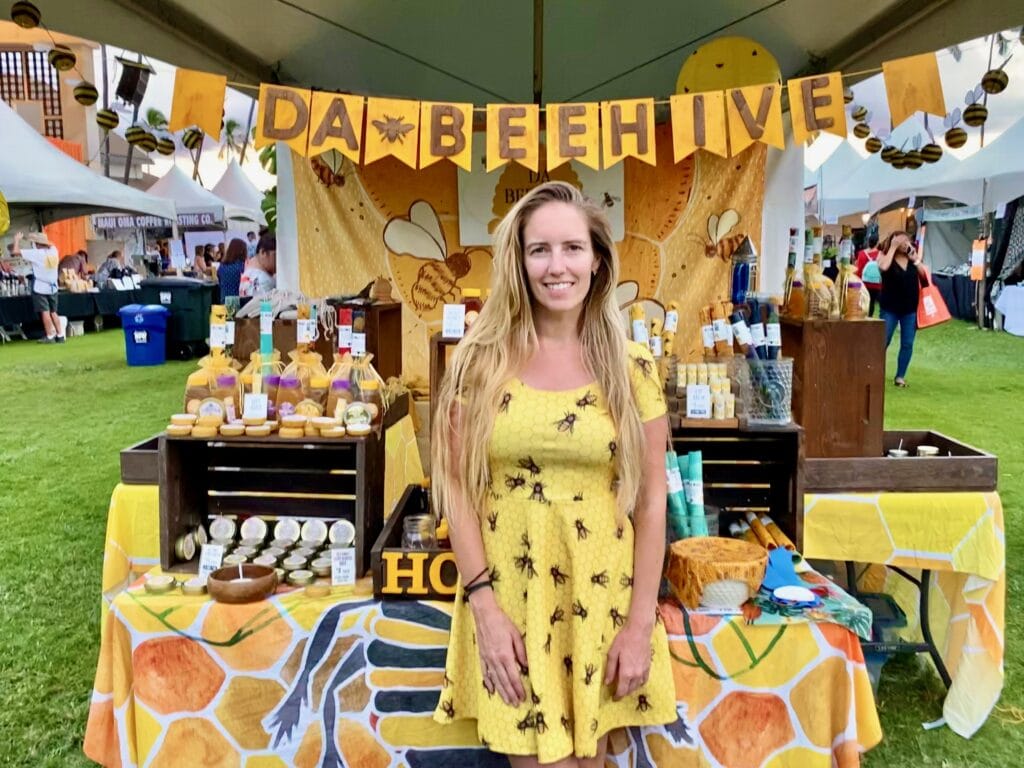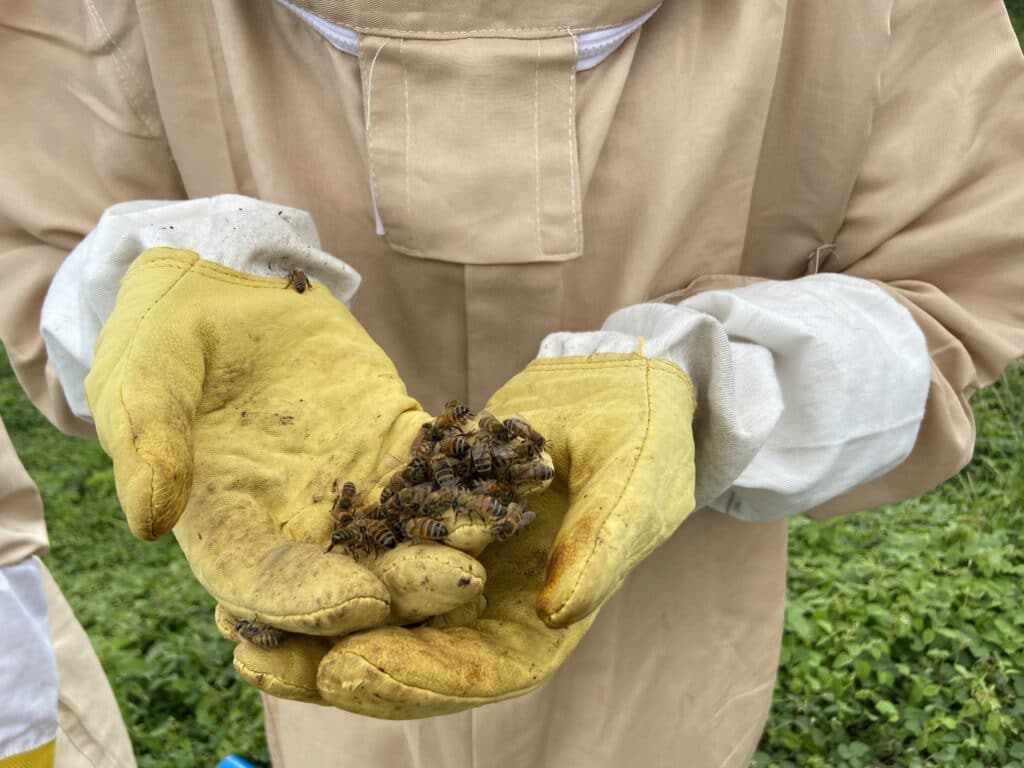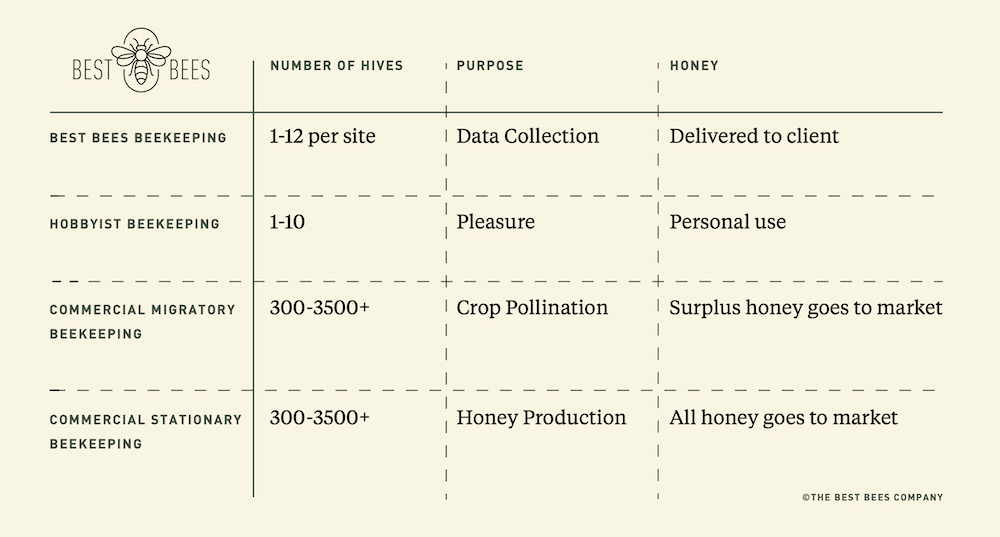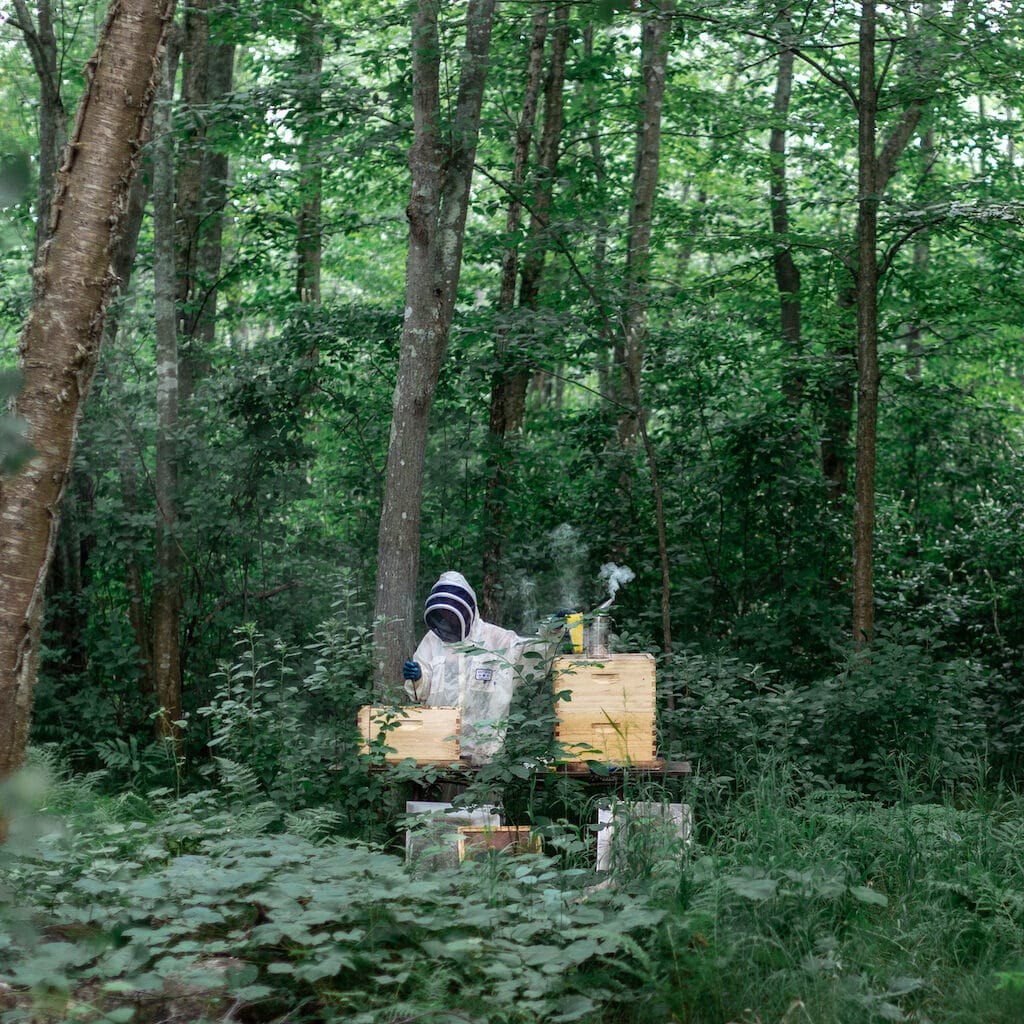Did you know that honeybees were once native to the United States? Although the native species would eventually die out, they would be reintroduced to the Americas during the early 1600’s. However, none of those native honey bees ever produced any honey. According to Honey Bees in Early America, “Only after the honey bee was brought over by Europeans, was honey to be found throughout America.”
It wasn’t until I met a Maui beekeeper, Erica Erickson, that I would learn that honeybees would arrive to the islands of Hawaii much later. The first attempt to bring a hive to Honolulu from Boston, MA did not go as planned. As noted by the beekeeping blog, Comvita, “all the honeycomb melted while crossing through the tropics, killing all the bees.” About a year later, the next attempt also failed even with the hives packed in ice to keep them cool.
In 1854, the Royal Hawaiian Agricultural Society put out a challenge to get bees to the islands. As reported by Comvita, the state offered ten dollars to the person who could introduce the first honeybee to Hawaii. About 3 years later, 4 hives from California would arrive in Honolulu.
Hawaii Grown explores ideas that can help small farmers by examining Hawaii’s relationship with bees. They go on to note that “others are advocating that Hawaii embrace non-native species to reduce the state’s dependence on imported food.”
With our next generation beekeepers, the future of the planet looks hopeful. Beekeepers such as Erickson are emphasizing how bees can teach us about the environment, the planet, and ourselves. Continue reading below to learn more about Erickson and how she got into beekeeping and how honeybees can be seen as a guide to healing at her honeybee sanctuary.
What is your name?
Erica Erickson
What are your pronouns?
She / Her
Where are you from?
I am originally from the Washington DC metropolitan area and I primarily grew up in Northern Virginia. I graduated from Virginia Tech and prior to beekeeping I worked as a photographer.
Where are you currently based out of?
I am based on the beautiful island of Maui. I am located in the upcountry area which is the part of Maui situated on the inactive volcano called Haleakala. My property overlooks the Pacific ocean and neighboring islands.
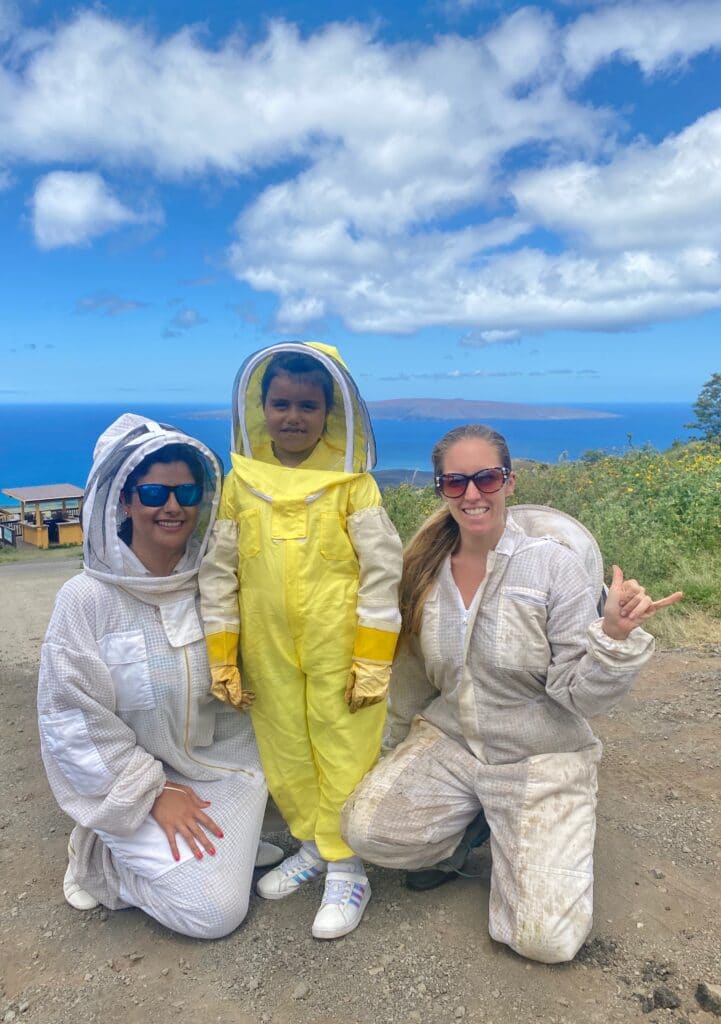
How long have you been a beekeeper?
I have been a beekeeper for almost 5 years. Growing up, I was always into arts and crafts but it wasn’t until I started making crafts out of beeswax such as lotions, lip balms, and candles that I became aware of these precious insects.
Eventually, my product making led me to participating in craft shows selling my handmade goods. As I would source beeswax directly from beekeepers for my products, I would form friendships and over time I started to learn more about bees. Once I moved to Maui I got my first beehive so that I could harvest honey and beeswax myself.
What’s your favorite part about beekeeping?
My favorite part about beekeeping is sharing about honeybees and their importance to our ecosystem with our visitors and local community. I offer a farm tour called the Maui Honeybee Adventure where people come to learn about bees and experience them up close in a bee suit. Holding a frame of bees and feeling their vibration is also one of my favorite parts and I enjoy sharing this experience with others. The vibration of the bees induces a meditative state that triggers our own self-healing frequency.
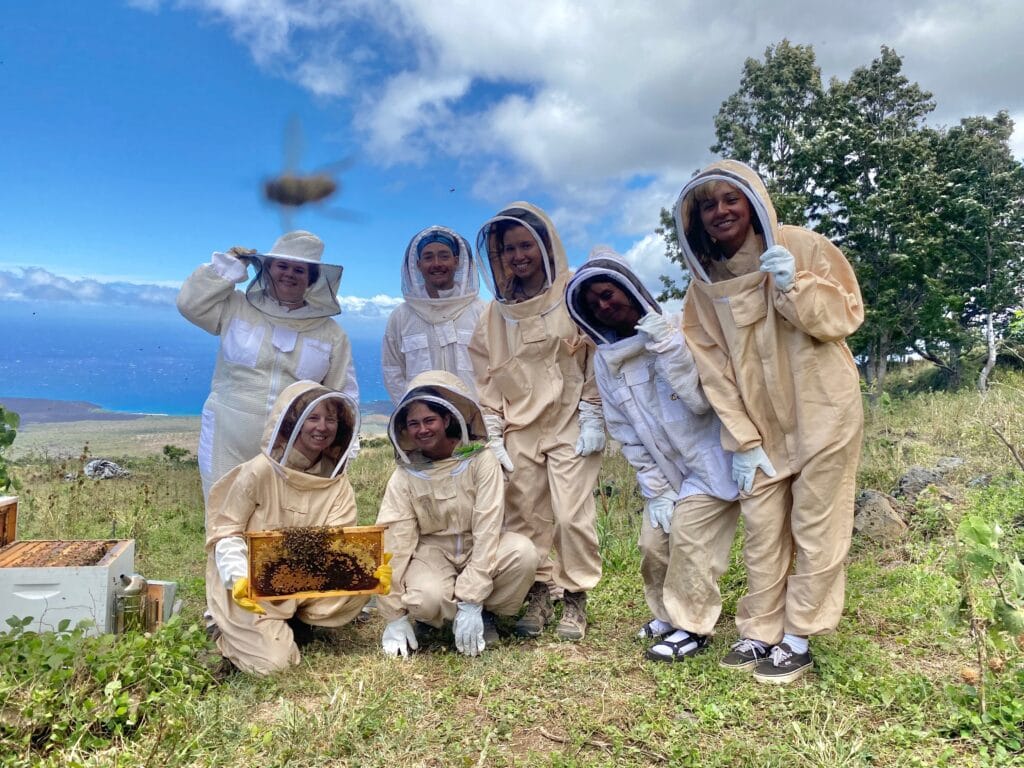
How did you begin Maui Honey Bee Sanctuary?
I began the sanctuary by purchasing a piece of agricultural land located on the Road to Hana to start my apiary. As people explore the East side of Maui on this scenic drive they can stop and check out our sanctuary and sample our honey. They can also purchase my beeswax products such as lotions, lip balms, and my most popular product – a reusable food wrap made from beeswax and fabric.
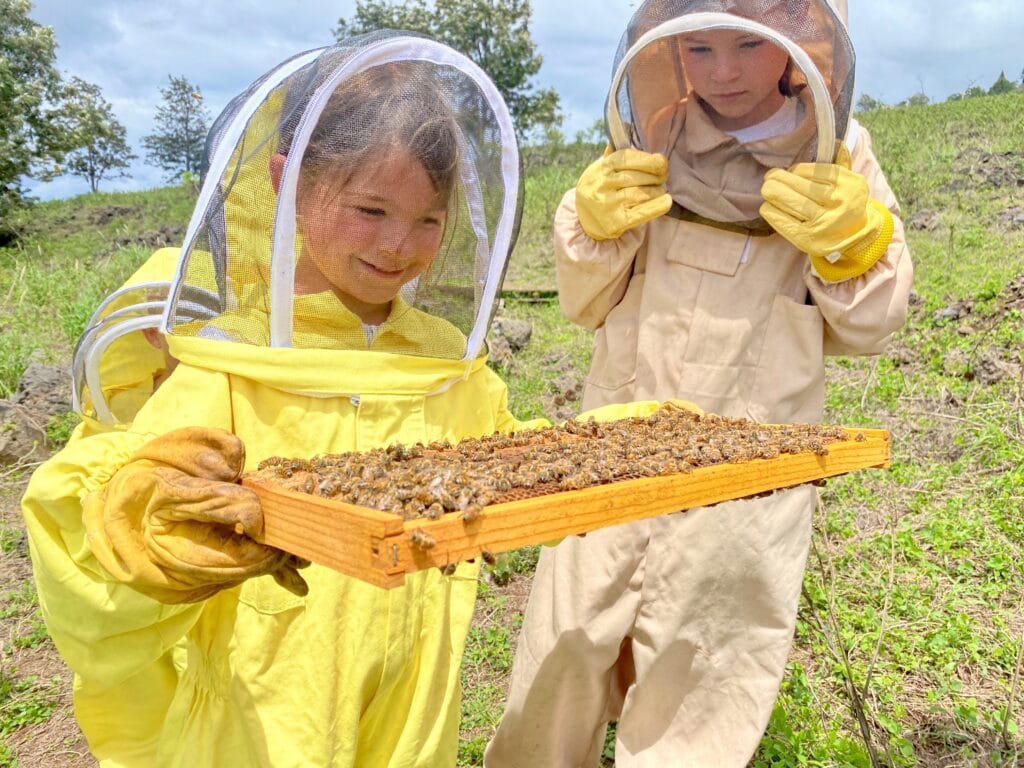
What is your favorite cool bee fact?
I always thought it was interesting that honeybees are the only insect that produces food that humans eat. I often surprise people by telling them that honeybees don’t make honey for humans but for the colony primarily to survive winter. Honeybees are not native to Hawaii and were only introduced to the islands just over 160 years ago. The honeybees in Hawaii don’t know that winter isn’t coming so they continue to collect nectar and make honey year round. Hawaiian honey is the best as it contains an extensive variety of floral sources and because their important food source is not taken from the colony when they might otherwise need it.
Honesty time: are you afraid of bees?
I am only afraid of being stung in the face because I swell so bad when I am stung. One time, I got stung on the forehead and my eye was swollen shut for 2 days! Other than that, I am not afraid of bees but I do suit up to protect myself as bee stings are never pleasant.
Would you rather be a queen bee or a worker bee?
This is a tough question as I could see benefits to being both. However, I think I would choose a worker bee so that I could get some beautiful aerial views of our planet whenever I venture out to collect what is needed for the hive.
What are you up to when you’re not beekeeping?
When I am not beekeeping you will usually find me dreaming up new products to make with the gifts from our beehives. I love to combine bee products and herbs to create healing tinctures and topicals. I operate a shop in downtown Paia called “Da Beehive” where I offer my concoctions for sale. www.dabeehive.com
Is there anything that you’ve been working on or that you’re excited about that you’d like to promote?
Along with an architect we are building a honeybee healing temple at the sanctuary. The temple is a hexagon shaped structure that will have 10 beehives in the walls.
The purpose of the temple is to provide a space for beehive air therapy. This project will allow people to sit up close to the hives breathing in beneficial compounds from the hive while being protected by screens. Bee air therapy is recognized as a potential remedy for treating ailments such as asthma, dementia, chronic headaches, respiratory tract infections as well as relieving feelings of depression and promoting a general sense of well-being.


